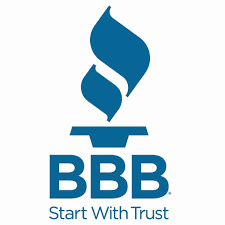BBB: Impostor scammers target consumers and businesses
Published 7:00 am Tuesday, April 1, 2025
Buying an automobile or heavy equipment of any kind is a major purchase. Don’t let scam groups fool you into handing over your cash. Since 2022, Better Business Bureau (BBB) received over 200 reports of consumers attempting to purchase a vehicle or other heavy equipment online, only to run into a scammer impersonating a reputable seller.
Additionally, BBB collected another 140 complaints reported directly to us, to attorneys general, tip lines and other sources. When pooled together, the reports revealed a pattern of fraudulent websites, where scammers claim to sell all kinds of vehicles — sedans, trucks, SUVs, classic cars, boats, ATVs and even farm equipment — at attractive low prices.
These websites can look especially legitimate by cloning the original websites of real business in the auto and equipment sales industries. Businesses may have their pictures, design and products copied wholesale, with only the contact information swapped out with the scammer’s information.
Those who are in the market for one of these vehicles need to be extra vigilant, as these supposed sellers always claim their vehicles and equipment must be shipped, not allowing buyers to check the legitimacy of the vehicle or equipment in person. And once money is handed over, the fraudsters disappear.
Scammers organize, create convincing fakes
Many of the reports to BBB show scammers creating increasingly realistic, believable websites. And many of these websites appear to be tied together, indicating organized groups may be behind these frauds.
By examining the scam websites and registration, BBB was able to track clusters of websites with shared domain name servers. One server, located in Lithuania, was home to nearly 30 different websites reported to BBB. These fakes claimed to be located throughout the United States, impersonating businesses in Alabama, Minnesota, North Dakota and Ohio. They claimed to be typical auto sellers as well as purveyors of classic and vintage cars, farm equipment and general agricultural machinery.
Another name server, located in Iceland, was home to almost 20 more fraudulent sites, with additional locations in Tennessee, Nevada and South Carolina. While many of the websites appeared to sell similar products, some also claimed to sell heavy machinery and construction equipment.
When a shopper stumbles upon one of these sites, the losses can be significant.
Greg in Wyoming told BBB he was planning to buy an RV online from a seller in Minnesota. The vehicle was for sale for a great deal at $14,000, and the seller, calling himself Marcus, promised to ship the vehicle across the country for free. Greg paid half of the price, planning to pay the other half upon delivery, which was never made.
Business reputations can suffer as scammers thrive
As people may lose thousands of dollars to scammers, business reputations are at equal risk. The impersonation can lead to poor reviews from customers who believe that the legitimate business is stealing. Over the last few years, businesses have spoken out about being impersonated, recounting the harsh effects it can have on their livelihood.
One business owner, Doug, whose business was impersonated recounted his experience with BBB. In September, Doug and his wife, who repair and sell parts for motor homes, received messages from people who said they were showing unusual inventory online compared to what Doug’s business usually stocked. The couple realized that someone was impersonating their business, stealing pictures of the shop, their address and nearly everything else about their business.
Doug reached out to search engines in an attempt to stop the website from showing up when customers looked for his business, but he struggled to get the website taken down.
In the following months, Doug received thousands of emails from frustrated customers who believed he had scammed them. The scammers also inundated him with threatening messages and calls.
Doug said it is impossible to calculate the loss of business and is now planning to close the business, in large part due to the stress and difficulties related to the incident.
Know the red flags of vehicle and equipment seller scams:
–The price is significantly below market value
–Owner cites an overly personal reason they need to get rid of a vehicle
–A seller will not allow you to see the vehicle and insists upon vehicle delivery
–Money must be sent to a third-party recommended by seller
BBB tips to avoid vehicle and equipment seller scams:
–Be wary of too-good-to-be-true prices
–Pick up a vehicle yourself whenever possible
Call a business and ask if you can see the car in person
–Resist high-pressure tactics urging quick action
–Use secondary sources to research a business’ legitimacy
–Avoid sharing personal information with unknown sources
Visit BBB.org to check out a business or register a complaint, or to report a scam and BBB.org/scamstudies for more on this and other scams.
—Kelvin Collins is president & CEO of the Better Business Bureau serving the Fall Line Corridor, serving 77 counties in East Alabama, West Georgia, Southwest Georgia, Central Georgia, East Georgia and Western South Carolina. This tips column is provided through the local BBB and the International Association of Better Business Bureaus (IABBB). The Better Business Bureau sets standards for ethical business behavior, monitors compliance and helps consumers identify trustworthy businesses. Questions or complaints about a specific company or charity should be referred directly to the BBB at Phone: 1-800-763-4222, website: BBB.org or email: info@centralgeorgia.


